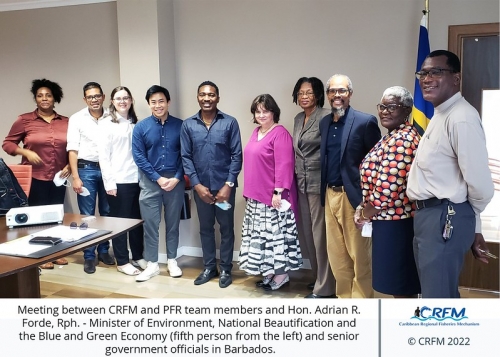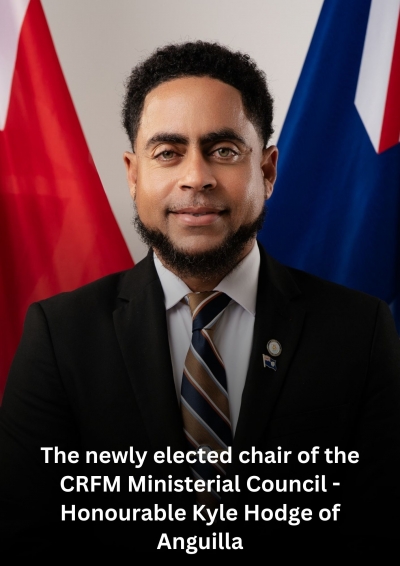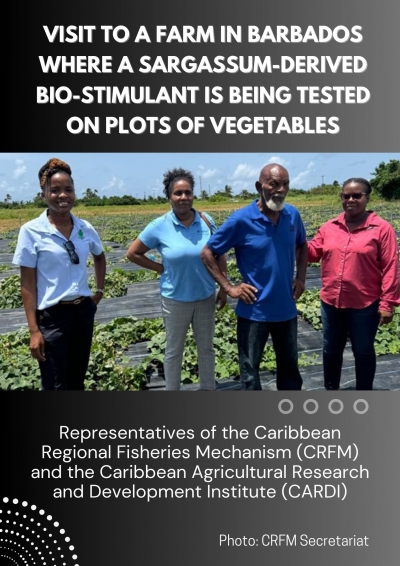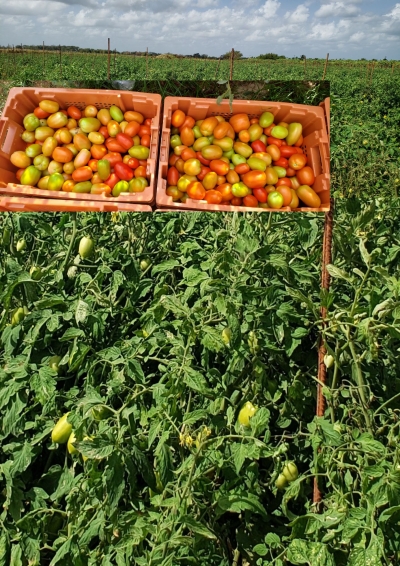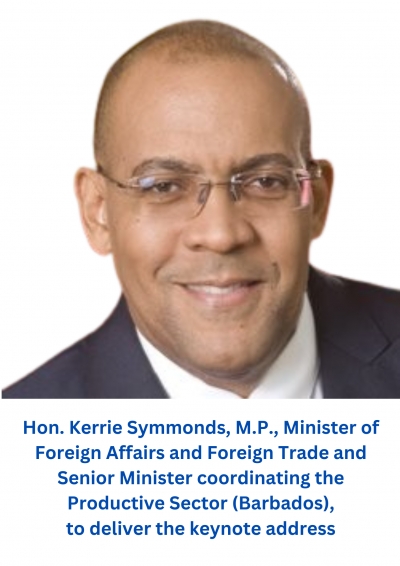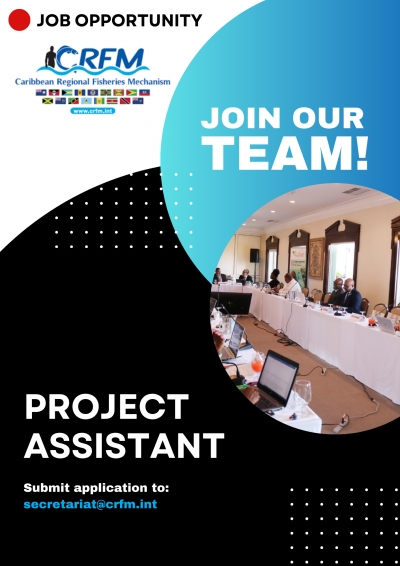Belize City, Friday, 15 July 2022 (CRFM)—Delegations from the Caribbean Regional Fisheries Mechanism (CRFM) and Plant and Food Research Limited (PFR) of New Zealand have concluded a month-long tour in the Caribbean, including Cancun, Mexico, to gain firsthand knowledge of how the region has been coping with the persistent Sargassum problem. Incidentally, the mission was taking place as Sargassum influxes for the month of June hit a new historical record, underscoring the urgency of scaling up collaboration and private-public partnerships to convert Sargassum into economically viable, climate resilient products.
The CRFM contingent, comprised by Mr. Milton Haughton - Executive Director, Dr. Sandra Grant - Deputy Executive Director, Dr. Maren Headley - Programme Manager, Fisheries Management and Development, and Mrs. Beverley Sutherland - Project Coordinator, was joined by PFR’s Head of International Development - Dr. Suzie Newman, and her team: Ms. Rosie Paterson-Lima - Program Manager International Development, Mr. Wilson Huang - Senior Commercial Manager, and Dr. Mario Alayon - Scientist & Development Engineer.
This tour marks an important milestone in the New Zealand-funded Sargassum Products for Climate Resilience in the Caribbean project, which seeks to mitigate the environmental and economic impacts of Sargassum seaweed influxes in affected Caribbean countries through the creation of inclusive value chains. The partners are now transitioning from phase 1, which involved raw material safety testing and harvesting operations review, to phase 2, which will focus on product and process development for Sargassum-derived products. Following the mission, the team is accessing the information gathered to formulate a plan of action for phase 2.
The first leg of the mission took the CRFM and PFR teams to Barbados, where they met with Hon. Adrian R. Forde, Rph. - Minister of Environment, National Beautification and the Blue and Green Economy and senior Government officials with responsibility for Blue Economic Growth and Fisheries, individuals from the private sector, and representatives of the Caribbean Agricultural Research and Development Institute (CARDI), the University of the West Indies’ Centre for Resource Management and Environmental Studies (UWI-CERMES), the Food and Agriculture Organization (FAO), and the United Nations Development Programme (UNDP), between June 8-10, 2022.
Subsequently, the mission traveled to Saint Lucia, where they also met with Hon Jeremiah Norbert, Deputy Speaker of the Lower House of Parliament, and other senior government officials and individuals from the private sector, including the Caribbean Network of Fisherfolk Organisations (CNFO) from June 11-14, 2022. They met with representatives of Sir Arthur Lewis Community College, in addition to community leaders in some of the heavily impacted coastal communities in Vieux Fort, Micoud and Dennery.

On the third leg of the mission, the CRFM and PFR contingents traveled to the Dominican Republic, where they met the District Director of Punta Cana Town – Mr. Ramon Antonio Ramirez, as well as representatives of the Instituto Tecnológico de Santo Domingo and private sector representatives involved in collection and management of Sargassum.
From there, the mission traveled to Belize, where the representatives of the CRFM and PFR met from June 21-26, 2022, with officials of government ministries responsible for Tourism, Agriculture, and Blue Economy, as well as CARDI, the University of Belize, and members of the private sector. While in Belize, the CRFM and PFR mission also traveled to the island of San Pedro for a site visit, to assess the areas that are being affected by Sargassum.
The final leg of the mission was Mexico. During June 26-29, 2022, the representatives of CRFM and PFR visited two (2) private sector companies, one which makes liquid fertilizer and soil enhancer from Sargassum, and the other which manufactures construction supplies from Sargassum.

“We were able to observe firsthand the effects of the Sargassum influx in the countries we visited. This allowed us to better understand the ongoing initiatives to utilize the Sargassum. The mission furthermore enabled us to make some critical connections with both private and public sector partners that will be useful as we move into the second phase of the Project,” said Ms. Sutherland, the Project Coordinator for CRFM.
Based on the information gathered during the tour and the analysis done on the samples that were collected in the first phase of the project, the focus will be on the formulation of liquid fertilizers and construction supplies.
The June 2022 Outlook of Sargassum blooms in the Caribbean Sea and Gulf of Mexico, recently published by the University of South Florida Optical Oceanography Lab said, “…the total Sargassum [in the Caribbean Sea, Gulf of Mexico and Central Atlantic area] amount increased from ~18.8 million tons in May 2022 to ~24.2 million tons in June 2022, thus setting a new historical record.”


